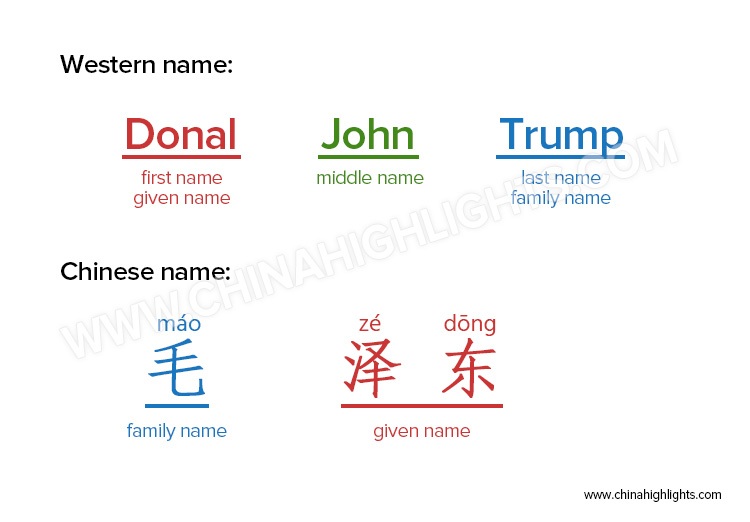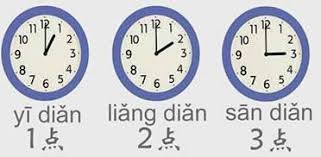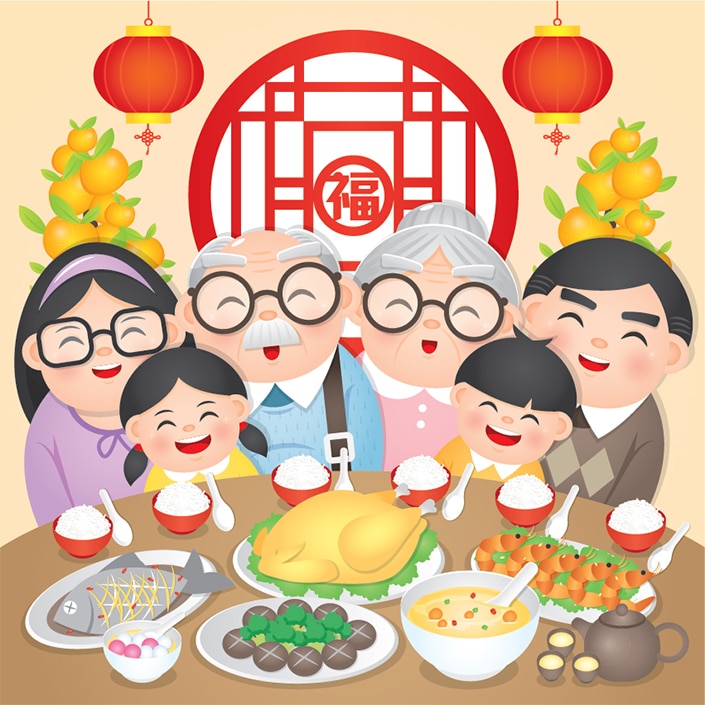Summary of Learning Reflection and Cultural Exploration 1
Learning materials
I am regularly reading the textbook on a regular basis every day for around 15 minutes to make sure that I have a solid understanding of the concepts. The audio and visual materials for all the chapters are extremely helpful in supplementing my verbal practice from the OP sessions. If I am unsure about how to say something I will always refer to the audio/video materials to see how an actual Chinese person would pronounce it. Additional learning materials that I find very helpful are trying to speak to my Chinese friends using the words that I have learned in class. This also helps me learn many new words that I have not learned during class.
Time management
I always plan out a specific day of the week to do all the homework for the week. This allows me to really focus on learning all the concepts in a single day and applying my knowledge to solidify my understanding. Every day, I try to do a bit of practice speaking every day to practice my pronunciation and accent. Most days of the week I will also read parts of the textbook to make sure I understand everything.
Evaluation
I understand how I am evaluated in the course because I have read the syllabus. The syllabus was a great resource to seeing the breakdown of marks, and what we will be examined on. The best lessons for me are the oral practice sessions because it is often a 1-1 session for me to speak to someone with a Chinese background and practice my speaking. These sessions also allow me to practice all of the main skills that are required in formulating questions, learning new words and recalling words that I already know.
Learning components
I prepare for the quizzes by going through the textbook and memorizing how to say the different words. Sometimes I will practice with a friend who is Chinese to make sure that I say the words correctly. This helps me write the correct sound in the pinyin listening quiz. I also try to recognize the different characters and cover one side of the textbook and try to define what the word is. Sometimes, I will also try to type the different characters from memory to ensure I can recall it correctly.
Other topics of learning
I would like to determine how I would be able to learn more words at a faster pace. I am considering doing more reading from elementary school books in China or reading a different textbook to learn more words. I may also try watching Chinese movies with subtitles to hear their pronunciation and learn more words to add to my vocabulary.
Cultural Exploration
Regarding Names: Some of the unique characteristics of names in Chinese is that the last name comes first and then first name. Additionally, there are typically 2-3 characters that make up someone's full name (2 first names and 1 last name). Finally, Chinese names are based on characters and have an actual meaning to them. This is different from English where you have names that are typically English words that are just meant to be names. Additionally, first names come first and last names come last. In English, most people have a first and last name, while only some people have a middle name.

Regarding family: The typical family in Canada can be very large with many cousins, aunts and uncles. Chinese people typically have only one child, and based on the history of China, this was typically a boy. That means that most people will have few aunts/uncles if any. There is also typically 2-3 generations because lifespans in China are quite similar to Canada. In China, family is a major topic because China is a very collectivist society. People commonly celebrate holidays together with their family and go to each other's houses on a regular basis to visit each other. However in Canada, a much more individualistic society, people still have a focus on family but less so compared to Chinese. While people may visit their family on a relatively regular basis, they will likely not do it as much compared to a Chinese person. Rather, it will often be for holidays or celebrations.
In English, brother just means a male sibling, while in Chinese, there are individual terms for oldest brother, middle brother, youngest brother, etc. This is the same thing for sisters. Additionally, there are differences in words for grandma and grandpa in Chinese based on whether they are from your mother or father's side, while in English it is just called grandma and grandpa.
In Canadian culture there is no preference for boys and girls so there is a relatively equal split for both. However in Chinese culture there was a large preference for boys. This means that that there are a lot of GenX males compared to GenX females. This is less so the case in China now, where people are becoming more open to having females. This affects society because there may be some difficulties in sustaining the Chinese population if there are not enough girls, so it is great that people in China are becoming more open to having girls.

Regarding occupations: In Chinese culture it may be appropriate to ask someone about their occupation. If it is a professional conversation it would be much more appropriate compared to if it is a personal situation where you are trying to get to know someone. The same thing applies to Canadian culture, where it may be appropriate to ask someone about their occupation.
The most prestigious occupations in China would likely be a doctor, lawyer or engineer. In Canada, similar professions are seen very highly. However, computer scientists are also becoming very important in Canada which makes their prestige higher.
The most popular jobs among Chinese young people are likely we-chat influencers and jobs in tech companies because that is where the future is heading. In Canada, we do not have we-chat but many young people still want to become influencers on platforms such as TikTok or Instagram. People are flocking to degrees and jobs within the tech industry such as software engineers and computer scientists. Lastly, many people seek to further their studies by going into research or a graduate program (medicine, law, etc.). Compared to in China, Canada requires at least 3 years of an undergraduate degree before applying to graduate programs so doctors and lawyers are older here.

Other cultural explorations: I really like trying different types of Chinese food. I like sharing food with my friends whenever I go to a Chinese restaurant and tasting the different types of spices in the food. Chinese people cook meat to a greater degree than Canadians, who prefer their meat more rare. Additionally, people in Canada typically have their own dish rather than sharing with their entire family or friend group. Lastly, I am interested in business in China. One of the most interesting things to me is how in China there is a strong push towards local work. Additionally, many companies are heavily owned by the Chinese government. Many people in business gift each other wine and other luxury items as a token of friendship.

Summary of Learning Reflection and Cultural Exploration 2
1. Teaching and Learning Components
Teaching and Learning
I really liked the teaching and learning organization in the course. It is well balanced between reading, writing and speaking which gave me a solid base of understanding for Chinese. I actively participate in lectures by asking questions during class and practicing speaking by speaking after the teacher. During class activities I am also able to practice with my peers to improve my Chinese and apply my understanding of concepts to speaking with others. The learning components are similar because it is focused on learning the concept and then applying it to a novel situation. For example, we will learn a new word and then have to apply it to a new situation and try to use it in conversations with our TA, professor or other students. I am very engaged with the learning components because I really want to improve in my Chinese. I continuously try to make sure I am caught up on the prereading and ask questions in class to make sure that I understand everything that is being taught.
2. Learning strategies:
Learning Effectively
An ideal approach for me to achieve my learning goals efficiently is to continuously find new ways to learn concepts that I do not understand rather than trying to do the same thing over and over again. For example I will use flashcards to memorize different words that I do not remember and will ask to practice conversing with the professor or TAs during or after class.
One of my major weaknesses I identified in the class is that I am not that good at listening and replying without seeing the text on the screen. I was not aware of this because most of the time when we are doing practices and homework, we have the text in front of us so it is easy to forget that I am simply just reading rather than listening. To improve this, I try to respond to questions from the teacher and TAs without reading the textbook/screen and practice the listening exercises to make sure that I understand what is happening.
There are many strategies that I will be able to apply to other courses. For example, spaced out repetition of things that I need to know has been a very helpful strategy to make sure that I can remember all of the words in Chinese and apply them to new situations. By continuously practicing throughout the week rather than just doing everything on one day this has helped a lot. I have also found it quite helpful to reach out to the professor and TAs for additional practice and will continue doing this in my other classes to make sure that I have a strong understanding of material.
Cultural Exploration
1. Expression of Dates and Time (number): In Chinese expressions of date and time, it goes from largest to smallest (year, month, day, time). This is not necessarily that similar to Canadian culture because we often express it as day/month/year which is the exact opposite. Sometimes it is even month/day/year which is in a different order. There are some similarities however, for example, months are expressed in 1-12 increments and days are expressed in 1-31 increments very much like in the English calendar where January is the 1st month and December is the 12th month. Times are also told on a 12 hour scale and 60 minute scale which makes it very translatable to English which is very similar.

2. Birthday and Age: Chinese people have two different ways to ask about age 你几岁 ?and 你今年多大? while in English people would normally just say "how old are you?". In Chinese, people express age numbers on the same numerical scale as English numbers which makes it quite easy to remember as well. Birthdays are often a large celebration in Chinese culture, where people will celebrate with their friends and family. People will go out to large dinners and if they are in the younger generation they may go to clubs/bars. This is quite similar to American culture too, where people will also celebrate birthdays with their loved ones and friends, while going out to do something fun. In Chinese culture it is often taboo to ask about someone's age especially if they are older. This is also quite common in Canada too, particularly in women who may find it offensive.

3. Festivals: Festivals are not celebrated at the same time every year because it is based on the Chinese calendar and moon cycles which are not consistent throughout the year. Other festivals that are celebrated may include the Dragon Boat Festival, New Year Day and Labor Day. These festivals are not that common in Canadian culture except for new years, which is widely celebrated by everyone. However, even in Chinese culture, Chinese New Year is a much bigger holiday. In Canada we celebrate other holidays such as Canada Day, Family Day, etc. As Chinese influence spreads in Canada, more people are celebrating Chinese holidays such as Chinese New Year, however.

Mid-Autumn Festival: Mid-Autumn Festival is one of the most important traditional festivals in some Asian cultures. (1) What cultures celebrate Mid-Autumn Festival? What do you know about the festival? (3) In oral practice session 5, we read a poem "Thought at a Quiet Night ", in which "Moon" is a significant symbol as well as in Mid-Autumn Festival. Is there a similar festival in your own culture? What is the significance of "Moon" in your own cultures, literature, and/or religion?
The mid autumn festival is celebrated by in mainland China, Taiwan, Hong Kong, Macau, and Vietnam, as well as by overseas Chinese and Vietnamese communities. It is a traditional festival to celebrate the Change'e the moon Godess in Chinese mythology. It is meant to symbolize prosperity and good fortune within Chinese communities. There are a few similar holidays in Canadian culture also symbolized by religious stories such as Easter which is meant to celebrate when Jesus resurrected and Christmas which is when Jesus died. The moon has less symbolism in Canadian culture and within the science community it is still something that people want to study and learn more about.

4. Regarding Pastime: I have head about Mahjong because many of my friends parents play the game. Other traditional passtimes may include Calligraphy, Tai Chi and tea ceremony. Unique pastimes in Canadian culture are hockey, lacrosse and eating Thanksgiving Turkey.

Learning Reflection and Cultural Exploration 3
Learning Reflection
(1). Reflect on your starting point with Chinese, in terms of listening, speaking, reading, and writing(typing) and/or your overall Chinese proficiency. Compare your level with your current level now, which is only two weeks later. Celebrate your achievements!
Going from a starting point of having no Chinese knowledge to now being able to have a basic conversation makes me very proud of all of the work that I have put into the Chinese class. Even speaking with some of my Chinese friends, I can see that my communication skills have significantly increased. Whenever we are having a conversation I am able to pick up on some of the words that they are saying even though they are much more advanced compared to my level.
When I go to restaurants, I am also able to communicate relatively effectively with some of the staff and even though there are some words that I do not know how to say, I am proud that I am in the process of learning how to communicate and hope that I will be able to get to a much higher level with more practice.
(2). Analyze what topics you can discuss in Chinese now, both asking questions and answering questions. Use Lesson 1, 2, 3, 4 and 5 learning objectives on the first page of every lesson to guide your discussion.
In lesson 1, I learned how to do basic greetings, including how to introduce myself and say my occupation. Specifically, I learned how to sway hello, formalities when asking questions, how to ask people's names and say my name, ask someone if they are a teacher and ask/answer where I am from.
In lesson 2, I learned basics of communicating about my family. I learned how to discuss photos and introduce my family members. Specifically, I learned how to say ho many people are in my family, ask who someone is, say the different members of my family and say what profession my family members have.
In lesson 3, I learned how to tell time and dates. Specifically, I learned how to ask the time/date, how to tell someone what the time/day is, ask and tell someone I am busy and how to invite someone out for dinner.
In lesson 4, I learned about different hobbies. I learned how to communicate about my likes/dislikes for hobbies and to ask people for what they like to do. Specifically, I learned how to say many hobbies in Chinese such as playing ball, singing, dancing and listening to music. I also learned how to invite someone to do a hobby over the weekend.
In lesson 5, I learned how to talk about visiting friends. I learned how to greet someone coming to my house, offer them drinks and telling them when I completed something.
Overall, this has given me a strong foundation for Chinese learning.
(3). You can use the following learning objectives of this course to guide your own analysis of your own learning. The following table lists the designed learning objectives for this course, which was shared with you at the beginning of the term. Take a look at them again at the end of the term. And comment on ANY or All of the following.
Which objective(s) is/are the most important one(s) for you to begin with and has this changed now?
The most important objective for me coming in was pronunciation and vocabulary. This is because I want to learn how to communicate in speaking and writing form in Chinese which required me to learn how to understand what is being said and knowing how to say what I want to say when communicating to someone else.
Have you and/or how much have you achieved any (or every one of the) learning objectives? What are some of achievements that you are proud of?
I was able to accomplish this quite well during the Chinese course because of its focus on teaching speaking skills during the oral practice and learning new vocabulary every day during class. In addition, thanks to all the help from the professor I was able to pick up even more vocabulary than what is in the textbook.
What other learning objectives that are not listed here have you achieved or would want to achieve in an introductory Chinese language course?
I also want to learn more about more opportunities to learn Chinese outside of the class such as private tutoring, immersive language programs and online resources for learning. I think this would help me take my Chinese language skills to the next level during my learning and after I complete the class.
Cultural Reflection
Reflect on your interaction with people with a Chinese background, e.g. international students from Chinese speaking areas in your other class, instructors or TAs with a Chinese background, community members with a Chinese speaking background, other people with Chinese speaking background you encountered in your life, etc.,
I have communicated quite extensively with Chinese people in my everyday life. My extended family is in Singapore, so I have been able to interact with many ethnic Chinese people.
In addition, UBC is a very international school with many students coming from Chinese speaking countries such as mainland China, Taiwan, Hongkong and others. I have made many friends who come from these backgrounds and as such am able to learn from them about their heritage.
Lastly, as Vancouver is a very diverse city, there are many strangers that I meet on the street who are speaking Chinese that I have the potential to communicate with as I improve my Chinese speaking abilities.

Discuss how these cultural similarities and differences have affected your experience, positively or negatively,
There are many cultural similarities between myself and other Chinese people because even though I grew up in an English speaking household, my family has kept many Chinese traditions that are passed on from my ancestors in Singapore and China. For example, my parents raised me in a very hands-on manner and are quite traditional in the food that we eat at home. This allows me to relate quite well with other Chinese students who had a similar upbringing
However there are some very significant differences between us as well. As my household does not speak Chinese, there is a part of the cultural element that I am always missing when communicating with my Chinese friends in English. I also have not extensively travelled in Asia or China which makes it difficult for me to relate to some of the geographical knowledge and China-specific things that my friends are talking about.

How you plan to use your learning and exploration of cultural similarities and differences to facilitate your interaction with people with a Chinese background, and, in general, with people of diverse cultural backgrounds.
I hope to use my cultural learning to learn more about Chinese cultural in the future. I hope to one day enroll in a cultural immersion program in one of the Chinese speaking countries such as Mainland China and Taiwan to improve my language abilities while learning more about the cultural aspects of the country.
In addition, I will continue interacting with my Chinese friends to learn more about their history and background to gain a better understanding of Chinese cultural in general. Through this I hope to improve my diversity as a person and be able to relate better to Chinese people.

 icons at the top right corner of the subsection.
icons at the top right corner of the subsection.